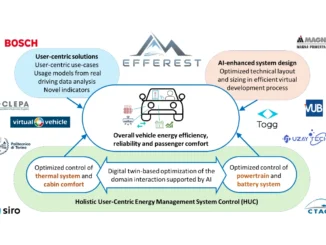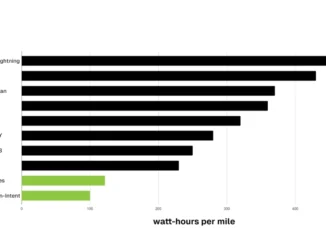
Trier University of Applied Sciences has developed an efficiency classification system for electric cars in collaboration with international research institutions. The aim is to offer a comprehensible and transparent assessment of the power consumption and range of electric cars. To date, there has been no such regulation in the EU, although the energy consumption of electric vehicles varies greatly – from heavy SUVs to small cars.
Prof. Dr. Eckard Helmers (photo, Environmental Campus Birkenfeld) and Dr. Martin Weiss, together with the Colorado School of Mines, have published a study analyzing 342 electric cars. Their results show that electric cars enable a significant reduction in CO₂ emissions: After 20,000 to 200,000 km of use, they pay for themselves ecologically compared to combustion engines and reduce emissions by up to two thirds. These findings are crucial for the decarbonization of mobility and the achievement of climate targets. The studies by Helmers and Weiss emphasize the importance of a comprehensive view of the entire life cycle of vehicles (life cycle assessment) as opposed to a pure energy consumption view („well-to-wheel“). They provide valuable insights into price trends, production costs and the optimization potential for future mobility with low CO₂ emissions.
However, the research also reveals that no increase in efficiency has been observed in electric cars since the beginning of electrification, although technological advances would lead one to expect this. This is mainly due to the increasing size and power of modern vehicles, a trend that has already caused similar efficiency losses in combustion engines. (oe)




